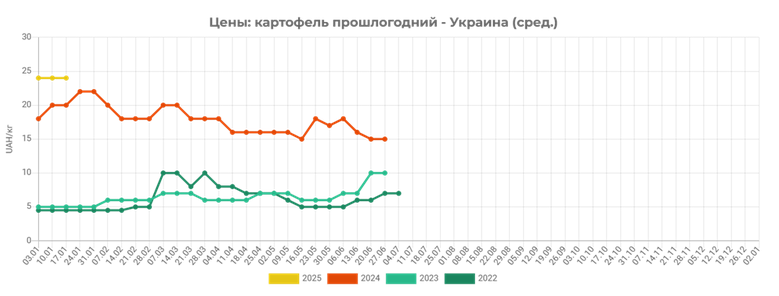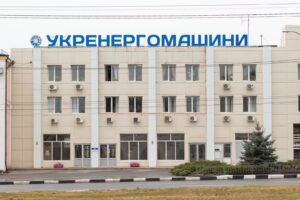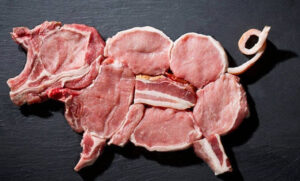
On January 23, the Berlin Gemäldegalerie hosted the grand opening of the exhibition “From Odesa to Berlin. European painting of the XVI-XIX centuries”. The exhibition includes 60 paintings from the collection of the Odesa Museum of Western and Oriental Art, as well as works from Berlin collections.
The ceremony was attended by Federal President of Germany Frank-Walter Steinmeier, Minister of Culture and Strategic Communications of Ukraine Mykola Tochytskyi, Federal Government Commissioner for Culture and Media, State Minister Claudia Roth, President of the Prussian Cultural Heritage Foundation Hermann Partzinger, Ambassador Extraordinary and Plenipotentiary of Ukraine to Germany Oleksiy Makeev.
In his speech,Frank-Walter Steinmeier emphasized that the exhibition demonstrates that Russia’s bloody war of aggression is also a war against Ukrainian culture and Ukrainian identity. At the same time, the exhibition emphasizes the courage and determination of Ukrainians in protecting their cultural heritage.
The German President emphasized the importance of the exhibits from the museum in Odesa, which were saved from Russian attacks and brought to Berlin. He called for continued support for Ukraine in its struggle for its culture and expressed hope for the paintings’ speedy return to independent Ukraine.
In turn, Mykola Tochytskyi expressed his gratitude to the German partners for supporting joint efforts to protect Ukraine’s cultural identity. He emphasized that Ukrainian culture is an integral part of European culture. At the same time, the patronage of the exhibition of masterpieces from the Odesa Museum of Western and Eastern Art is an important practical step in developing a cultural dialogue between Ukrainians and Germans.
“Joint cultural events help the German audience to get to know Ukrainian culture better, to see its vulnerability in the face of Russian aggression and to understand why it is so important to protect it,” the Minister emphasized. “Russians can destroy a museum and a building, but they cannot erase cultural memory. The barbaric attack on Ukrainian culture is an attack on Europe.”
As a reminder, after Russia’s full-scale invasion of Ukraine on February 24, 2022, the staff of the Museum of Western and Eastern Art in Odesa evacuated the most valuable paintings to a safe place. In September 2023, 74 works of art were delivered to the German capital, and in February 2024, about a dozen paintings became part of an exhibition at an art gallery in Berlin. Now visitors will have the opportunity to see another 60 paintings from the Odesa museum. Among them are works by Francesco Granacci, a representative of the Florentine school, Rulant Saverey, a master of etching and an outstanding artist from the golden age of Dutch painting, as well as the German landscape painter Andreas Achenbach.
Exhibition “From Odesa to Berlin” opens in Berlin under the patronage of the President of GermanyThe project is implemented under the patronage of the President of the Federal Republic of Germany Frank-Walter Steinmeier and with the support of the Federal Government Commissioner for Culture and Media Claudia Roth.
Theexhibition at the Berlin Art Gallery will run until June 22, 2025.

On January 31, Kyiv will host Grain Storage Forum, the largest agricultural forum in Ukraine dedicated to storage, processing, logistics and trading of agricultural products.
Organizers: Ukrainian Grain Association, PU “Millers of Ukraine”, Association of Elevators of Ukraine, Bioenergy Association of Ukraine, Agro Marketing Agency, Solar Energy Association of Ukraine, ProAgro Group.
Venue: 16a Parkova Road, Kyiv, CEC “Parkovy”.
The purpose of the forum isto analyze the current state of the industry, identify key problems, develop solutions for stable operation and increase the efficiency of agricultural production, processing, trading and logistics in wartime.
The forum will include:
– 4 conferences:
– Ukrainian Grain Conference
– Conference “Agro-processing: financing and investments”
– Conference “Agro-energy security and agro-energy efficiency”
– Conference “Grain storage and drying”
– Presentation seminars from market leaders;
– Speeches by leading industry experts with cases of effective agribusiness, government officials and experts;
– Exhibition of technological solutions and equipment from leading manufacturers;
– Lounge area, area for business communication;
– Coffee breaks, receptions, live music.
For more information, please visit the official website: https://grain-forum-elevator.com
For partnership and participation in the exhibition, please contact the organizers: +38 096 899 4272 | +38 067 243 3803 | proagro-inform@ukr.net

After a short period of stability, selling prices for potatoes in Ukraine have started to grow again, analysts of the EastFruit project report. The main reason for another rise in prices in this segment, according to experts, was a general reduction in the supply of potatoes in local farms. The fact is that many Ukrainian producers, who do not have capacity for long-term storage, finished selling potatoes in the first half of the current season.

This situation has already affected prices, which since the beginning of this week have risen to 20-30 UAH/kg ($ 0.48-0.71/kg), which is on average 12% higher than at the end of the last working week. It should be noted that representatives of wholesale companies complain about the lack of necessary volumes of quality potatoes in local farms. Farmers, in turn, attribute potato quality problems to unfavorable weather conditions during the harvesting period: prolonged rains had a negative impact not only on the marketable form of potatoes, but also on their storability. Also, according to producers, in 2024, many of them used planting material not of the highest quality.
Prices for potatoes in Ukraine today on average 16% higher than at the end of January last year. Moreover, many market players believe that in the near future the rate of appreciation of these products will noticeably accelerate, “fueled” by information about a possible shortage of quality potatoes in the Ukrainian market.
You can get more detailed information about the development of the potato and other fruit and vegetable products market in Ukraine by subscribing to the analytical weekly EastFruit Ukraine Weekly Pro. Detailed product information is available here.

JSC Ukrenergomashiny (Kharkiv), more than 75.22% of which is owned by the state, doubled its sales in 2024 compared to 2023, said Viktor Subbotin, CEO of the company.
“We have had a difficult year, but I should note that in 2024 we sold twice as much product as in 2023. This is a great achievement of our entire team. We also have orders for 2025,” Subbotin said in a statement on the company’s website during a festive event marking the 91st anniversary of the plant’s foundation.
According to the Clarity Project, in 2024, the company’s net income from sales of products decreased by almost 2.8 times compared to 2022, to UAH 376.3 million, but in January-September 2024, this figure increased by 2.6 times compared to the same period in 2023, to UAH 616.1 million.
The CEO also emphasized that JSC Ukrenergomashiny remains to operate in Kharkiv.
“I am often asked about the relocation of the enterprise. Therefore, I want to assure you that the company will not leave Kharkiv. We are opening branches in western Ukraine, hoping to return to peaceful life as soon as possible,” Subbotin said.
As reported, in April 2024, the company’s supervisory board decided to establish three branches in western Ukraine – Lviv, Zakarpattia and Chernivtsi. At the time, the press service of Ukrenergomashin clarified that the company remains in Kharkiv and does not change its legal address, and that the branches are being created to speed up the production of electric traction equipment and logistics processes in order to quickly deliver equipment under export contracts.
In addition, the establishment of branches near the EU border will improve the logistics of raw materials and supplies, as Ukrenergomashiny has lost a number of suppliers of parts and rolled metal products in Ukraine.
JSC Ukrenergomashiny is the only Ukrainian manufacturer of turbine equipment for hydro, thermal and nuclear power plants. The company also produces electric motors for railway and urban transport (Electrotyazhmash nomenclature).

Prices for slaughter pigs in the second half of January stabilized at UAH 74.25, which is 0.1% higher than a week earlier, according to the Pig Producers of Ukraine (PUA), based on the results of weekly monitoring.
“Quotations on the live market for the second week in a row are at the level of 74-75 UAH/kg in all regions. Thus, in the course of trading, a number of operators revised prices by 0.5-1 UAH/kg both downward and upward, but mostly the prices for the purchase of cuttings remained at the level of last week. Both higher and lower price offers are recorded sporadically, and the deviation from the mentioned range does not exceed 1 UAH/kg,” analysts explained.
The association’s experts cited information from representatives of the meat processing industry, who note a weakening in sales through all channels, but express hope for a revival at the beginning of the new month.
The majority of both producers and processors state that the supply of live pigs remains limited. At the same time, some procurers believe that this factor is not enough to maintain the current price level at future auctions, so they expect a 2-3 UAH/kg reduction, the industry association states.
At the same time, the USBA doubts that lower prices will be able to revive pork sales, facilitate the sale of more expensive residues or counteract dumping in the pork market, which has already manifested itself amid fierce competition between suppliers. Therefore, a number of players do not rule out further stabilization of quotations.

Borrowings from clients in the agricultural sector account for about 40% of the loan portfolio of the state-owned Ukrgasbank (Kyiv), said Mykola Alfyorov, deputy director of the small and medium business department of the financial institution.
“In general, 40% of our loan portfolio is made up of clients from the agricultural sector. This area will always be a priority, despite all the risks, as evidenced by the statistics of all banks,” he said at the Agro Finance Summit in Kyiv on Thursday.
According to him, in 2024 Ukrgasbank increased lending to the agricultural sector in the investment direction: it accounted for 50% of all loans. In total, since the beginning of the full-scale war, the bank has issued loans for almost UAH 10 billion.
“In the first year of the war, it was a task aimed at replenishing working capital and providing it to farmers so that they could sow and harvest on time. Already in 2023, we saw a dynamic increase in the investment interest of the agricultural sector, and in 2024 it was a real growth,” said Alfiorov.
Among the most popular financial products among agrarians, he named the state program “5-7-9%” in combination with international programs.
The Deputy Director of the Department also pointed out that Ukrgasbank actively provides financing up to UAH 8 million using guarantee mechanisms from farmers, but this amount can be doubled to UAH 16 million under a portfolio guarantee or a guarantee of an international organization.
According to the National Bank of Ukraine, as of November 1, 2024, Ukrgasbank ranked 5th (UAH 136.18 billion) among 62 banks operating in the country in terms of total assets. The net profit of the financial institution for 10 months of the year amounted to UAH 4.84 billion, while for the same period in 2023 it was UAH 3.36 billion.